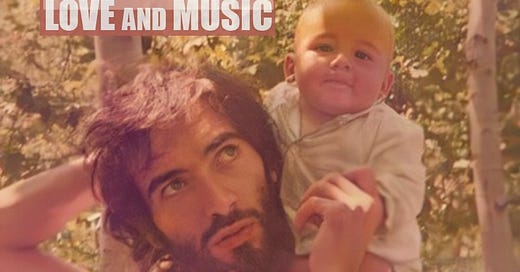For the sake of not spamming your inbox with posts too often, I’m combining a couple of topics in this one.
Let’s start with something that has made me take a hard look at myself and rethink the way I approach things.
In my way of parenting, I have always made a point not to lie to my daughter, not to present a Disneyfied version of reality, not to hide life’s realities because her age. Often, parents make it seem like they have all the answers, which is reassuring to kids… while they still believe it. Then comes a day when they realize that’s not the case, and it often creates a serious reassessment of things, plus some questions about whether their parents can be trusted. In light of this, I never pretended that everything was always perfect. And I found it more gsenuine to be open about my weaknesses as much as my strengths.
My daughter has appreciated my radical honesty… to a degree. Because even a good idea taken too far is no longer a good idea. In recent discussions with her, something clicked and I was able to see things through her eyes. Like with all things, it’s a balancing act. Share some of your vulnerabilities and it goes a long way to build trust. Do it too much, and now you make your kids stressed and sad about you. Luckily, my daughter is comfortable enough to speak plainly with me, and she made it clear that my moods sometimes affect her.
That’s all I needed to hear.
I had clearly let the pendulum swing too far one way, so her feedback was what I needed to course-correct. It was like pushing a button. I dropped whatever emotional baggage was weighing on me, and made a point to switch gear and be the person she needed me to be in that moment. As it turns out, she helped me tremendously since I was able to do for her what I had not been able to do for myself for weeks beforehand.
Incidentally, thinking about this stuff got me pondering about fatherhood in history, which is a topic I plan to explore in a future History on Fire episode. Without giving away too many spoilers, after researching a bit, I was blown away at how abysmally bad most fathers have been throughout the centuries. So, the good news is that, if you are a father, it really doesn’t take much to make it to the top 10% :)
On a completely unrelated note, I recently published an episode exclusive for those financially supporting the podcast. If you have $ 5 x month, and you enjoy my work, it may be worth considering getting the extra content I create to finance History on Fire. In this most recent bonus episode, I discuss the film The Last of the Mohicans, and the historical context of the French and Indian War. In recent months, I covered a tale of Aboriginal guerrilla during the early days of Australian colonization, the incredible history of the song Bella Ciao, Thomas Paine, and a whole lot more. Your support is deeply appreciated.
If money is tight, you can still enjoy this free episode of History on Fire that I just released. It’s entitled “Poets and Pirates, Sex and Drugs, Love and Music: D’Annunzio and L’Impresa di Fiume (part 2)”. This is the tale of one of the weirdest cultural-political experiments in modern history. The brutal end of WWI left many Italian soldiers dissatisfied, since the Allies refuse to grant them lands they had conquered at the price of rivers of blood. Feeling cheated by their own government and the Allies, some of these soldiers turned to the most popular man in the entire country: Gabriele D’Annunzio. Saying that he was a famous writer and a veteran of WWI doesn’t capture the magnetic power the man possessed. He was a true rock star before rock stars were a thing. He stopped traffic wherever he went. He made army units desert without using any weapon but his voice. Countless women risked their marriages, families and careers for a chance to have a fling with him. Casanova was an amateur compared to D’Annunzio. In 1919, D’Annunzio agreed to lead renegade units of the Italian Army to taking over the border city of Fiume. Despite the fact that this infuriated the Italian, French, British and American governments, D’Annunzio would go on to rule for fifteen months over an outlaw state where things that were not looked kindly upon in the world of 1919 (from drug use to free love, from the right to vote for women to nudism, from homosexuality to piracy) were widely practiced.
Part Two of this two-part series focuses on the contentious relationship between D’Annunzio and Mussolini, the kidnapping of an Italian general, D’Annunzio as the head of a pirate state, bubonic plague, Guglielmo Marconi, Arturo Toscanini, D’Annunzio getting thrown out of a window, and much more.
This series is particularly meaningful to me, since it’s the last thing my father and I worked on together (he helped me with the research) before he died. That’s why it’s dedicated to him.
Last but not least, here’s Chris Cornell doing an unplugged version of “Like a Stone” because… as far as musicians who can rip your heart out, Chris Cornell is as good as it gets—both technically and in terms of the emotion he can pour in his voice.
Hope you have a wonderful day.




